 Avenue Supermarts, the company behind D-Mart supermarket retail chain, is scheduled to launch its IPO on 8 March. The upcoming IPO is one of the most anticipated offers this year, primarily because the company is promoted by a respected stock market guru. DMart IPO will raise INR1,870 crore (INR18.7 billion) by issuing new shares, priced in the range of INR295 – 299 per share. Investors can place their orders for 50 shares and in multiples thereafter. The IPO will be managed by a large group of investment bankers including Kotak Mahindra Capital Company, Axis Capital, Edelweiss Financial Services, HDFC Bank, ICICI Securities, Inga Capital, JM Financial Institutional Securities, Motilal Oswal Investment Advisors and SBI Capital Markets while Link Intime has been appointed the registrar.
Avenue Supermarts, the company behind D-Mart supermarket retail chain, is scheduled to launch its IPO on 8 March. The upcoming IPO is one of the most anticipated offers this year, primarily because the company is promoted by a respected stock market guru. DMart IPO will raise INR1,870 crore (INR18.7 billion) by issuing new shares, priced in the range of INR295 – 299 per share. Investors can place their orders for 50 shares and in multiples thereafter. The IPO will be managed by a large group of investment bankers including Kotak Mahindra Capital Company, Axis Capital, Edelweiss Financial Services, HDFC Bank, ICICI Securities, Inga Capital, JM Financial Institutional Securities, Motilal Oswal Investment Advisors and SBI Capital Markets while Link Intime has been appointed the registrar.
Promoted by stock market veteran Radhakishan Damani, Avenue Supermarts IPO is likely to see huge demand from investors. This is understandable as Radhakishan Damani has an aura of an ace stock picker who locked horns with Harshad Mehta during the 90s by taking opposite trades amid mindless pumping of some stocks by Mehta. Widely known as Mr. White and White on Dalal Street, Damani is someone who Rakesh Jhunjhunwala also considers teacher and mentor.
Even though DMart IPO will face competition from Radio City IPO which will open on 6 March, there is strong demand for shares of Avenue Supermarts. The IPO is already traded actively in the grey market at strong premium. However, a similar frenzy was witnessed when Reliance Power IPO came nine years ago and lot of investors lost money in the mega IPO. Similar to last time, stock markets are currently at very high levels and many market observers are warning of stretched valuations. In DMart IPO review, we try to find out the positives and negatives and if retail investors should subscribe to the offer.
Avenue Supermarts IPO details | |
| Subscription Dates | 8 – 10 March 2017 |
| Price Band | INR295 – 299 per share |
| Fresh issue | INR1,870 crore |
| Offer For Sale | Nil |
| Total IPO size | INR1,870 crore |
| Minimum bid (lot size) | 50 shares |
| Face Value | INR10 per share |
| Retail Allocation | 35% |
| Listing On | NSE, BSE |
DMart IPO Review: No OFS and we love this
It is after sometime that the market will see an IPO without offer for sale (OFS). Last such IPO was of PNB Housing Finance in October last year. We simply like it when IPO companies get at least a portion of the proceeds. Net proceeds from D-Mart IPO will be used towards repayment or prepayment of a portion of loans and redemption or earlier redemption of Non-Convertible Debentures (NCDs) availed by the company and construction and purchase of fit outs for new stores and general corporate purposes. Out of the total IPO proceeds of INR1,870 crore, INR1,080 crore will go towards debt reduction by prepayment or repayment of loans and redemption or earlier redemption of NCDs. Another INR366.6 crore will be used for construction and purchase of fit outs for new stores.
Avenue Supermarts IPO Review: Big growth but private equity absent
As of 31 January 2017, Avenue Supermarts operates 118 D-Mart stores, spread primarily across Maharashtra and Gujarat. The company has never closed any of the outlets due to lack of profitability. Avenue Supermarts has all the ingredients of becoming a case study in business schools – backing of a reclusive but intelligent fanatic, strict adherence to cost controls, deep understanding of unit economics and lots of folklore. The company employs a number of strategies to keep its costs down and these include operating stores on ownership or long-term lease model, following cluster approach, leveraging supply chain efficiencies and buying huge volumes at low prices. DMart stores are typically opened in densely-populated residential areas that cater predominantly to lower-middle, middle and aspiring upper-middle class consumers. All these (and many more) approaches ensure that DMart typically offers lowest prices in the areas it operates into. A running joke in Food and Grocery (F&G) retail is that no one should open a new outlet in one km radius of a DMart store.
By now, our regular readers must have got comfortable reading names of big private equity (PE) investors in this section. PE investors tend to identify and tap growing and promising businesses much before such businesses come to stock market. With increasing access to such early financing, it is difficult to come across IPO stage companies with no major investor on-board. However, Avenue Supermarts trumps in this department too as Damani has managed to expand operations to the current level without selling equity. Radhakishan Damani directly owns 43.8% in the company while his investment vehicle Bright Star owns another 15.8%. His brother and several other family trusts own the remaining shares. The fact that promoters are not caching out should offer great comfort to IPO investors.
DMart IPO Review: 3.7% and shining
Headed by Neville Noronha, Avenue Supermarts is a fast growing business and it shows in its financial performance. The simple facts that the company is an enterprise of a first-generation businessman and started operations in 2002 are enough to tell that Avenue Supermarts has been on a roll. According to the consolidated financial statements available in the red herring prospectus, the company’s top-line was at INR2,222.4 crore in FY2012 but jumped nearly three-fold to INR8,606.1 crore in FY2016.
Read Also: Upcoming IPOs in 2017 to keep an eye on
On the earnings front, D-Mart recorded a profit of INR321.2 crore in FY2016, translating in a net profit margin of 3.7%. Profits in the latest year were up from INR60.4 crore in FY2012 and profitability is also treading up. Now, this single-digit profit margin may not be comparable to other industries but remains a robust figure in retail industry. Let’s not forget that F&G retail is notorious for wafer thin margins, cut-throat competition and leakages. This makes Damani’s 3.7% net profit margin industry-leading, if not iconic.
Avenue Supermarts’ consolidated financial performance (in INR crore) | |||||
| FY2012 | FY2013 | FY2014 | FY2015 | FY2016 | |
| Total revenue | 2,222.4 | 3,355.1 | 4,702.3 | 6,457.7 | 8,606.1 |
| Total expenses | 2,134.0 | 3,214.2 | 4,457.4 | 6,134.3 | 8,113.9 |
| Profit after tax | 60.4 | 93.9 | 161.4 | 211.7 | 321.2 |
| Profit margin (%) | 2.7 | 2.8 | 3.4 | 3.3 | 3.7 |
Source: Avenue Supermarts’ RHP
DMart IPO Review: Should you subscribe?
As indicated above, Avenue Supermarts comes across as an excellent portfolio stock. After all, there is a reason legendary investor Ramesh Damani owns 100,000 shares in the company and is not selling off. While we have no doubt that this investment has the potential to become a multibagger IPO, investment decision has to be validated by valuations and this is true for DMart IPO review as well.
Read Also: MBL (Radio City) IPO review: Rag rag mein daude
On the basis of FY2016 EPS of INR5.68, DMart IPO is valued at a PE ratio of 52.6. This is quite high and one can’t imagine of making money by buying at such levels. Thankfully, the pricing is decided on the basis of solid financial performance in the latest nine months. The company’s annualized EPS for FY2017 is likely to be INR9.2 which will value the IPO at a more reasonable PE ratio of 32.5. In comparison, Kishore Biyani’s Future Retail – the closest listed competitor of Avenue Supermarts – trades at a whopping 393.2X PE multiple on the basis of FY2016 earnings. The situation has improved in the latest nine months but the PE ratio for FY2017 is still expensive at 37.5. This is despite the fact that Future Retail’s profitability is nearly half from Avenue Supermarts’ margins. DMart IPO review clearly reveals that the offer is not priced at a premium (richly deserved) to its peer. Tata’s Trent is another listed retail player but its high focus on apparel retailing through Westside makes it incomparable with Avenue Supermarts.
By this point in DMart IPO review, our readers must be thinking that if the offer is this good, chances of getting allotment will be slim. Unfortunately, that’s right as all retail applications – whether INR15,000 or INR200,000 – are treated equally. This means investors are getting multiple demat accounts opened in names of family members and making small applications instead of placing large applications. Although SEBI indicated it may review the allotment system, there is no way out immediately and investors have no option but to participate in the lucky draw. If the strong grey market premium (GMP) the IPO is commanding currently is any indication, the lucky winners stand to gain tremendously. Head to our discussion page on DMart IPO to keep yourself updated about these price movements.








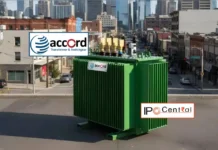





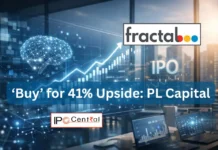



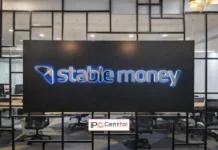













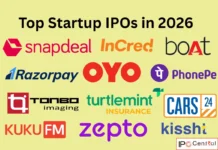
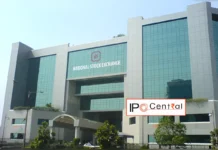

Lottery system is really difficult to understand. Many investors have applied for the IPO and ended with weird expressions. Looking at the numbers, nothing was extra ordinary about it but the hype created by the investors these days for the IPO actually making it attractive. Sharing personal experience about new entrants of the stock market, even many of them want to buy IPO without analysing anything, just on the attraction of listing gains. Listing gains are actually added value in the recent past IPOs and making market more attractive in coming time as well.